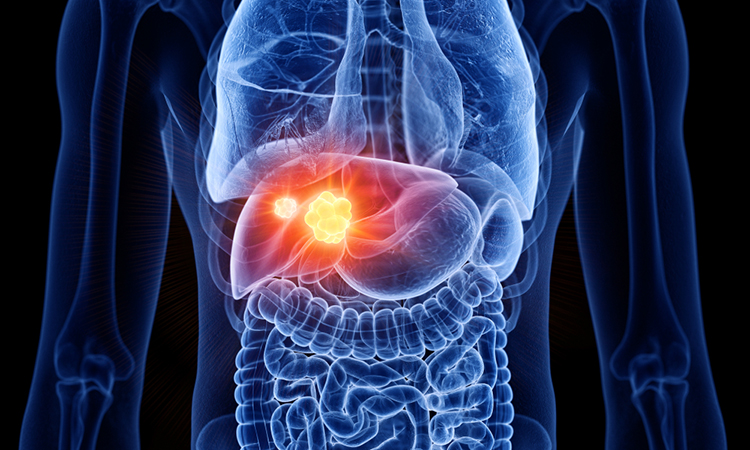Transomics’ impact on a promising liver cancer therapeutic
Posted: 17 May 2024 | Jon Hu (Pepper Bio) | No comments yet
Using its AI-driven platform, Pepper Bio discovered a promising therapeutic for liver cancer. In this Q&A session with Jon Hu, CEO and co-founder of Pepper Bio, we dive into how the identification of two inhibitors led to a $135M in-licensing deal.


What is Pepper Bio’s platform ‘COMPASS’, and what sets it apart from other drug discovery platforms?
COMPASS is Pepper’s ML-driven transomics platform that unlocks a functional understanding of disease and drugs transcending traditional expression-based approaches. Transomics integrates genomic, transcriptomic, proteomic, and phosphoproteomic data, going beyond conventional multi-omics – similar to using all your mirrors and knowing the impact of where all other cars are on the road. This holistic approach offers a full-picture understanding of biological systems and how those processes impact untreatable diseases like cancer. Others in the space focus primarily on one aspect of -omics data, such as genomics or proteomics which focus on expression, ie, how much of an analyte is present. In contrast, Pepper Bio unlocks understanding of function – what analytes are doing – to truly understand where to intervene in order to treat the disease.
What are the primary challenges inherent in treating hepatocellular carcinoma (HCC)?
Liver cancer is uniquely challenging as it nearly always follows another disease of the liver, resulting in high disease heterogeneity. This results in uncertainty in the underlying biology driving disease and poor response rates of 10-30 percent with existing drugs. Pepper approached this challenge by focusing on a subset of liver cancer driven by MYC (a known driver of HCC and other cancers). MYC-driven HCC not only has a worse prognosis – a 70 percent reduction in survival compared to those not driven by MYC – it is also difficult to target MYC directly. Our COMPASS platform provides a level of understanding of the complex biology behind MYC-driven HCC, allowing us to identify lerociclib as an effective therapeutic for patients with this difficult diagnosis. While historically untreatable due to challenges associated with targeting MYC directly, our approach allows us to look for ways to circumvent targeting MYC directly by instead targeting different protein(s) that mimic the effect of targeting MYC.
Could you elaborate on the preclinical testing process of lerociclib in HCC models and the efficacy it demonstrated?
Using our transomics platform, COMPASS, we identified CDK4 and CDK6 as highly effective targets for MYC-driven HCC and demonstrated in vivo lerociclib’s efficacy exceeded that of an approved HCC treatment. Specifically, COMPASS unlocks functional drivers of disease to identify novel drug targets.
To study the role of MYC in tumour biology, we collaborated with Dean Felsher’s Lab at Stanford University – leaders in MYC-driven cancer research – to leverage an HCC cell line with tunable MYC expression. We generated genomic, transcriptomic, proteomic, and phosphoproteomic data from samples with MYC-on and MYC-off and compared via COMPASS to identify novel targets that mimic turning MYC off. Inhibition of the targets CDK4 / 6 were prioritised in these studies. We tested the efficacy of these targets using lerociclib, a CDK4 / 6 inhibitor, and found that it stopped tumour growth better than an approved treatment. Notably, these results were observed in a particularly aggressive model of HCC driven by MYC overexpression.
How does Pepper Bio’s identification of CDK4 and CDK6 as potential targets for treating hepatocellular carcinoma (HCC) impact the current landscape of HCC treatment?
Pepper’s insights open up new therapeutic options for MYC-driven HCC patients (30 percent of HCC), who are currently faced not only with the same staggering 10-30 percent treatment response rate seen across HCC but also a 70 percent lower survival rate than the non-MYC driven disease. Lerociclib may provide MYC-driven HCC patients with a safe and more effective alternative to current therapies, which are far from curative.
Could you tell us more about other preclinical candidates currently in Pepper Bio’s pipeline?
Our early preclinical programmes include novel targets for other MYC-driven cancers, such as lymphoma. This underscores our strategy to focus on a specific patient population with the right drugs – a key aspect of our pipeline strategy and platform capabilities. We are pursuing novel drug development and in-licensing existing preclinical assets to hit these targets.
About the author
Jon Hu, CEO and co-founder of Pepper Bio


As CEO and co-founder of Pepper Bio, Jon leads the company’s fundraising, recruitment, and vision to develop the world’s first transomics drug discovery company. He received his MBA at Harvard and BS in Biomedical Engineering and Economics at Northwestern.
Related topics
Cancer research, Drug Discovery, Genomics, Proteomics
Related conditions
hepatocellular carcinoma (HCC), MYC-driven HCC
Related organisations
Pepper Bio








